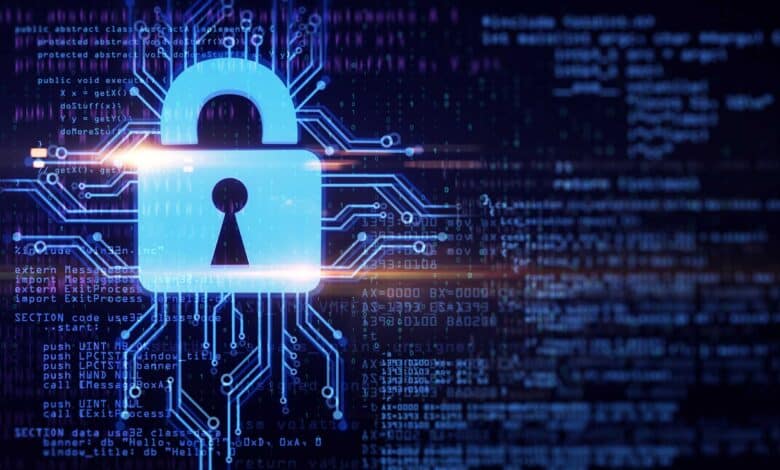Cyber Security

Cybersecurity is the practice of protecting electronic devices, networks, and sensitive information from unauthorized access, theft, damage, and other malicious activities. In today’s digital age, cybersecurity has become a critical issue for individuals, businesses, and governments.
- Types of cyber threats: There are various types of cyber threats such as phishing, malware, ransomware, social engineering, and denial of service (DoS) attacks. Bloggers can write about these threats, their characteristics, and how to prevent them.
- Cybersecurity tools: There are many cybersecurity tools and software available in the market that can help in protecting against cyber attacks. Bloggers can write about these tools, their features, and how to use them.
- Cybersecurity best practices: There are several best practices that can help in protecting against cyber threats such as strong passwords, two-factor authentication, regular software updates, and data backups. Bloggers can write about these best practices and how to implement them.
- Cybersecurity laws and regulations: Governments around the world have implemented various laws and regulations to protect against cyber threats. Bloggers can write about these laws, their implications, and how to comply with them.
- Cybersecurity in different industries: Cybersecurity is a concern for every industry, but some industries are more vulnerable to cyber attacks such as healthcare, finance, and government. Bloggers can write about the cybersecurity challenges in these industries and how to address them.
- Cybersecurity and remote work: The COVID-19 pandemic has forced many companies to adopt remote work. This has increased the risk of cyber attacks as employees are working from home. Bloggers can write about the cybersecurity challenges of remote work and how to mitigate them.
- Cybersecurity and artificial intelligence: Artificial intelligence is being used to improve cybersecurity by identifying and responding to cyber threats. Bloggers can write about the applications of artificial intelligence in cybersecurity and the challenges associated with it.
- Cybersecurity and cloud computing: Cloud computing is becoming more popular, but it also brings new cybersecurity challenges. Bloggers can write about the cybersecurity risks of cloud computing and how to protect against them.
- Cybersecurity and social media: Social media platforms are vulnerable to cyber attacks, and users need to be aware of the risks. Bloggers can write about the cybersecurity risks of social media and how to protect against them.
- Cybersecurity and personal privacy: Cybersecurity is closely related to personal privacy as cyber attacks can lead to the theft of personal information. Bloggers can write about the importance of personal privacy in cybersecurity and how to protect personal information.
Why cyber security important for your business?
There are several reasons why it is essential to care about cybersecurity in your company:
Protection of sensitive data: Cybersecurity is critical for protecting sensitive data such as personal information, financial information, and confidential business information. A data breach can result in reputational damage, loss of customer trust, and legal repercussions.
Compliance with regulations: Many industries have regulations in place to protect against cyber threats. Non-compliance with these regulations can result in legal and financial penalties.
Prevention of cyber attacks: Cyber attacks can be costly, disruptive, and damaging to a company’s reputation. Investing in cybersecurity measures can help prevent cyber attacks and minimize the impact of any attacks that do occur.
Protection of intellectual property: Intellectual property such as patents, trademarks, and copyrights are valuable assets that need to be protected from cyber threats.
Continuity of business operations: Cyber attacks can disrupt business operations, resulting in lost revenue and productivity. Implementing cybersecurity measures can help ensure business continuity and minimize the impact of any disruptions.
Protection of customer trust: Customers expect companies to protect their personal and financial information. A data breach can result in the loss of customer trust, which can be difficult to regain.
In summary, caring about cybersecurity is crucial for protecting sensitive data, complying with regulations, preventing cyber attacks, protecting intellectual property, ensuring business continuity, and maintaining customer trust.
What is hacking?
Hacking is the act of gaining unauthorized access to a computer system or network, often with malicious intent. It is typically done by exploiting vulnerabilities in the system or network, such as weak passwords or outdated software.

Hackers can use a variety of techniques to gain access to a system or network, including:
- Password cracking: This involves guessing or cracking passwords to gain access to a system or network.
- Social engineering: This involves using psychological manipulation to trick people into divulging sensitive information or granting access to a system or network.
- Malware: This refers to software designed to infiltrate a system or network, often by tricking the user into downloading and installing it.
- Network scanning: This involves scanning a network for vulnerabilities that can be exploited to gain access.
- Hackers can cause a range of damage to a system or network, including stealing sensitive information, modifying or deleting data, disrupting system operations, and installing additional malware.
It’s important to note that not all hacking is malicious. Ethical hackers, also known as “white hat” hackers, use their skills to identify vulnerabilities in systems and networks and report them to the appropriate authorities to help improve security. However, the term “hacking” is often associated with malicious activities.
Ethical Hacking
Ethical hacking, also known as “white hat” hacking, is the practice of using hacking techniques to identify and address vulnerabilities in computer systems and networks. Ethical hackers are hired by organizations to test the security of their systems and networks and identify potential vulnerabilities that could be exploited by malicious hackers.
Ethical hacking involves using the same techniques and tools as malicious hackers, such as social engineering, network scanning, and password cracking. However, ethical hackers are authorized by the organization to conduct these activities and have a clear set of rules and guidelines to follow.
The goal of ethical hacking is to identify vulnerabilities and security weaknesses in the system or network and provide recommendations on how to address them. This can help organizations improve their security posture and reduce the risk of cyber attacks.
Ethical hackers may also conduct penetration testing, which involves simulating a real-world cyber attack to test the effectiveness of the organization’s security controls.
Ethical hacking is a valuable practice in today’s digital age, as it helps organizations identify and address potential security risks before they can be exploited by malicious hackers. It also promotes a culture of security awareness and helps organizations stay ahead of evolving cyber threats.





Very well written and this is great to read from your blog.